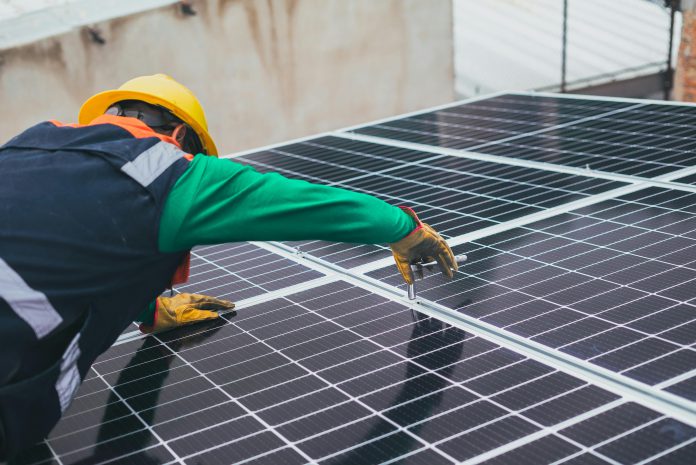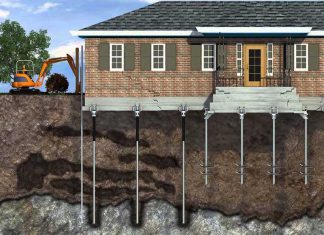In an era where environmental consciousness holds unprecedented importance, the endeavor to make your home more eco-friendly transcends mere trendiness; it embodies a fundamental responsibility. Fortunately, an array of innovative strategies exists to transform your living space into a haven of sustainability. Ranging from minor adjustments to substantial renovations, each initiative contributes significantly to fostering a more sustainable future. This article will delve into six ingenious approaches to make your home more eco-friendly:
Embrace Renewable Energy Sources:
Transitioning towards renewable energy sources, such as solar panels or wind turbines, stands as one of the most impactful steps in cultivating an eco-friendly home environment. With advancements in technology rendering solar panels increasingly efficient and cost-effective, the harnessing of solar power offers a tangible means to diminish reliance on fossil fuels and mitigate carbon footprints. Companies like Cenvar Solar are at the forefront of this revolution, providing innovative solutions for homeowners looking to make the switch to clean energy. Furthermore, various governmental incentives and rebates further incentivize the adoption of renewable energy systems, rendering it not only environmentally prudent but also financially astute.
Upgrade to Energy-Efficient Appliances:
The adoption of energy-efficient appliances constitutes another pivotal stride towards eco-friendliness within the home. From refrigerators to washing machines, contemporary appliances are engineered to minimize energy consumption while delivering optimal performance. Prioritizing appliances bearing the Energy Star label, indicative of adherence to stringent energy efficiency standards set by the Environmental Protection Agency (EPA), ensures a sustainable choice. While the initial investment may prove slightly higher, the accrued energy savings over time overshadow the upfront costs, aligning with both environmental stewardship and economic sensibility.
Optimize Water Management:
Conscientious water management emerges as paramount in both environmental sustainability and utility bill reduction endeavors. Implementing minor alterations, such as installing low-flow faucets and showerheads, yields substantial reductions in water consumption without compromising functionality. Moreover, the installation of rainwater harvesting systems presents an opportunity to harness rainwater for outdoor applications, such as irrigation or toilet flushing. By embracing such measures, wastage is minimized, thereby contributing to the preservation of this invaluable resource.
Enhance Insulation and Ventilation:
Elevating insulation and ventilation standards within the home not only amplifies energy efficiency but also augments comfort levels and indoor air quality. Effective insulation serves to regulate indoor temperatures, thereby diminishing reliance on heating and cooling systems, while robust ventilation mechanisms ensure the circulation of fresh air, curbing the accumulation of pollutants and allergens. Undertaking endeavors such as upgrading insulation materials, sealing air leaks, and integrating energy-recovery ventilators culminates in optimized energy utilization and an enhanced living environment.
Adopt Sustainable Materials and Practices:
Whether embarking on renovations or adorning your living space, prioritizing sustainable materials and practices facilitates a reduction in environmental impact. Opting for eco-friendly building materials—such as bamboo flooring, reclaimed wood, and recycled glass countertops—presents renewable and biodegradable alternatives to conventional options. Concurrently, selecting energy-efficient lighting fixtures, eco-conscious paints, and non-toxic cleaning agents contributes to the creation of a healthier and more sustainable dwelling. By exercising mindfulness in these selections, one simultaneously curtails ecological footprints while bestowing an aesthetic appeal upon the living space.
Integrate Smart Home Technology:
The integration of smart home technology represents a pivotal avenue for augmenting energy efficiency and convenience within the home setting. Devices such as smart thermostats empower remote regulation of heating and cooling systems, thereby optimizing energy consumption based on individual preferences and schedules. Likewise, smart lighting systems enable effortless control over lighting levels and energy usage, thereby curbing unnecessary consumption and reducing electricity bills. Through the seamless integration of smart devices and automation systems, energy wastage is minimized, and daily routines are streamlined, ultimately culminating in a reduced environmental impact.
Conclusion
In summation, the quest to render your home more eco-friendly transcends a mere trend; it embodies a conscious commitment to environmental stewardship, health, and financial prudence. By embracing renewable energy sources, adopting energy-efficient appliances, optimizing water management, enhancing insulation and ventilation standards, embracing sustainable materials and practices, and integrating smart home technology, one paves the path towards a greener, more sustainable living environment. With each incremental change, you collectively contribute to a brighter and more sustainable future for generations to come.












